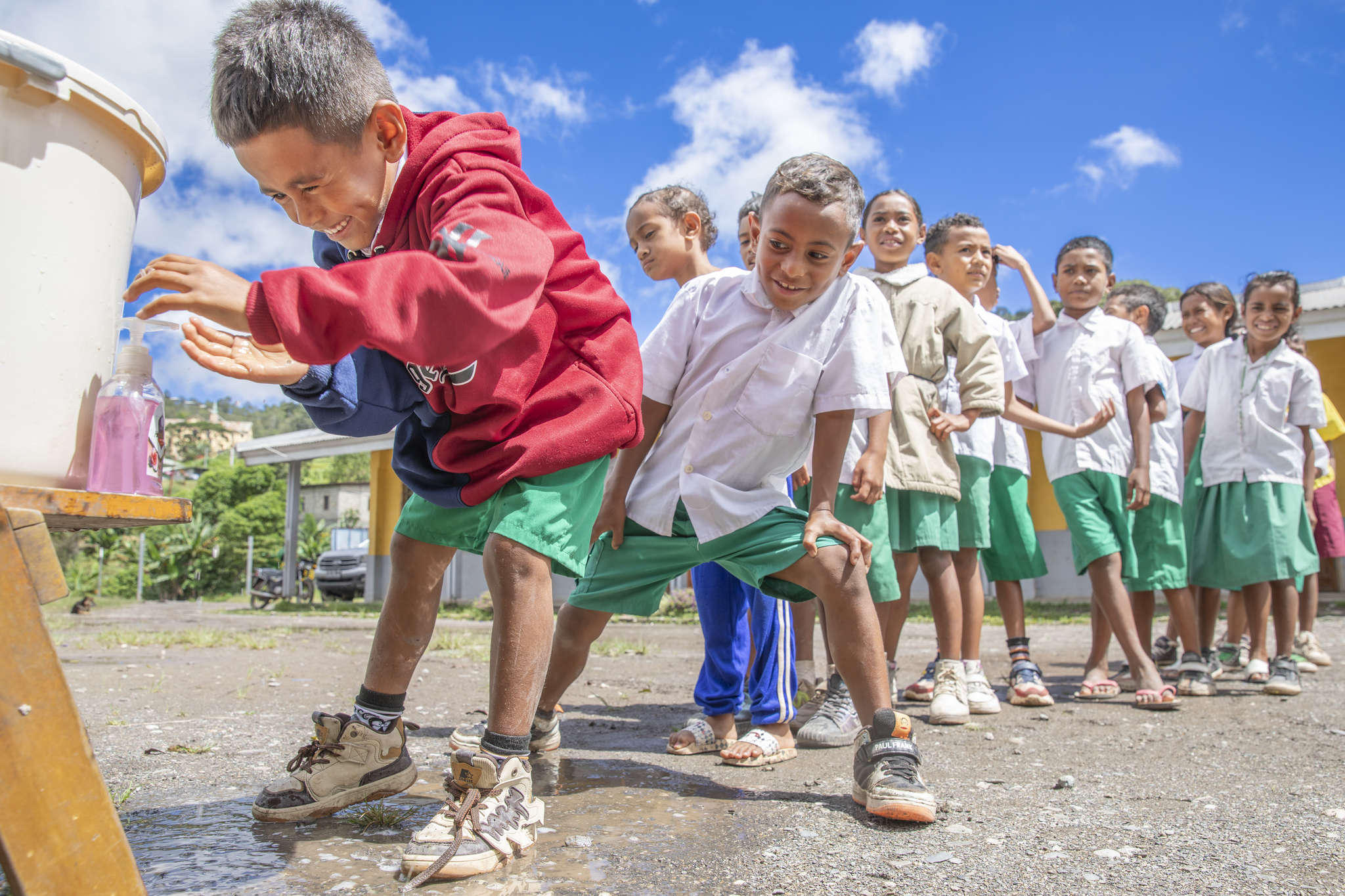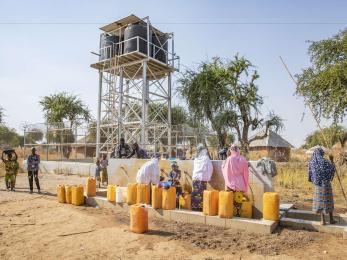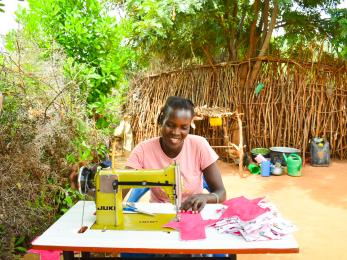CHAI program in India launches new initiatives
A partnership between Portland-based Tazo Tea, Mercy Corps and local implementing partner DEG is improving health care and agriculture in India's impoverished Darjeeling region.
Community Health and Advancement Initiative (CHAI) began a new era of corporate responsibility and social investment for Darjeeling. CHAI's focus is to improve the quality of life for families and rural communities in the region by accomplishing three main objectives:
- To reduce illnesses
- To strengthen the ability of communities to manage their resources, prioritize needs, understand their environment and represent their community interests
- To develop young people's (age 14-21) leadership skills and ability to capitalize on opportunities in their communities in order to build self-esteem and their commitment to these communities
The collaboration between Tazo, Mercy Corps, DEG and local tea workers continues to yield extremely positive results. Mercy Corps is working with educators, laborers, health workers and children to accomplish critical project goals: healthier communities, better-informed citizens and more empowerment for local communities.
Two recent developments are contributing to the success of the CHAI project:
Relief at Last
The CHAI Relief Component complements current health work around Darjeeling and emphasizes CHAI's commitment to long-term community support. This new initiative responds to emergency, recovery care and basic health needs of villagers living in rural communities across Darjeeling and includes the following:
- Emergency Health Care:
In order to ensure quality of care for community members requiring comprehensive health care services, ill persons can receive advice and treatment from a variety of quality health care providers. To date, three patients have been admitted to local hospitals; a young girl with rheumatic heart disease; a 28 year old mother suffering from third stage tuberculosis; and another with severe arthritis. Additionally, a health camp was held in the Lingten area, where over one hundred patients were treated for minor ailments. - Preventative, Curative and Referral Services through Trained Paramedics:
One person from each village is currently participating in a paramedic course to learn basic curative and preventative health care skills. After receiving the training, paramedics will provide basic health care services to villagers and when necessary, provide referrals to government, tea plantation or the CHAI Relief Component health services. Additionally, paramedics will complement current CHAI activities by supporting community health volunteers with specialized hygiene and sanitation work. Paramedics will manage a small first aid kit, stocked with basic health instruments and medicines. In order to cover costs, paramedics may charge villagers a small fee for receiving paramedic care and restocking their kits. - Community Medical Transportation:
In order to sustainably provide transportation for medical services, a revolving medical transportation fund will be established in those communities requesting the service.
Improving Animal Production in Parmen T
Families in the forested village of Parmen T rely heavily on their domestic animals for survival. Their cows, for example, currently produce about five liters of milk per day. This production could be increased to eight liters per day, however, through the adoption of improved management practices.
In August, the CHAI Project held a two-day animal husbandry workshop for local farmers. The workshop was facilitated by a local veterinarian and the CHAI Project Manager, and covered the essentials of a more productive animal husbandry system that would lead to increased milk supply.
At the end of the two day seminar, the participants had learned improved practices including using proper cow shelters, providing balanced diets and exercise, timely vaccinations, improved delivery procedures, treating ailments with recommended medicines and keeping records of livestock diseases and symptoms.
Workshop participants, as well as the entire community, are looking forward to incorporating their new skills to turn increased milk production into additional income for the household, such as processing milk into cheese and other common products for sale in the local market.


